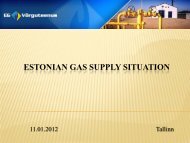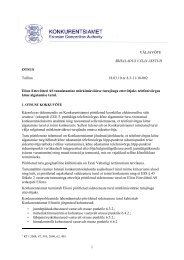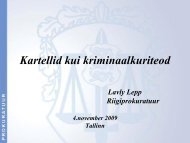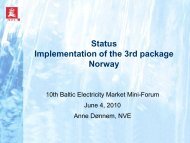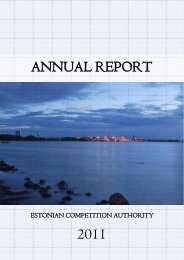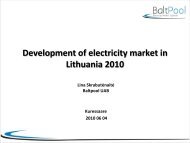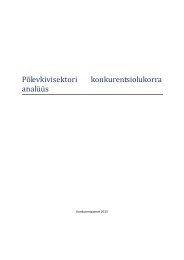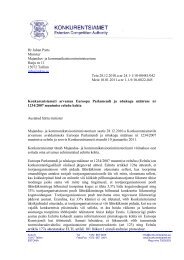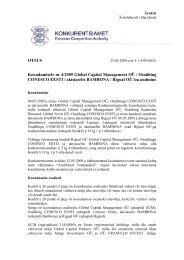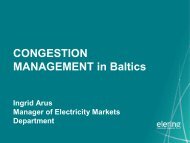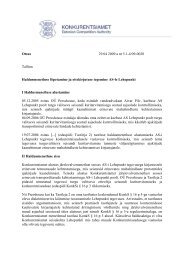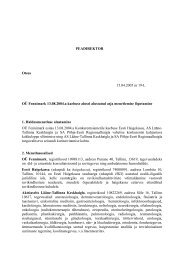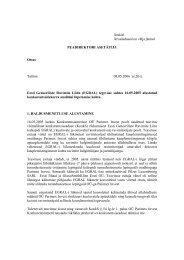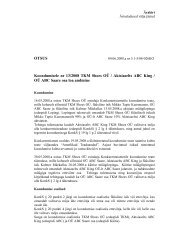ANNUAL REPORT 2010 - Konkurentsiamet
ANNUAL REPORT 2010 - Konkurentsiamet
ANNUAL REPORT 2010 - Konkurentsiamet
Create successful ePaper yourself
Turn your PDF publications into a flip-book with our unique Google optimized e-Paper software.
the explanatory report of the draft 597 SE, annexed to the text of the draft and taking into<br />
account the later amendments 2 .<br />
Compared to the initial text of the draft, MHKS has totally changed in the final version. The<br />
part of ÜVVKS was amended, joining the ideas of the initial text of the draft submitted by<br />
parties with the provisions related to the economic regulation of the draft prepared in the<br />
Ministry of the Environment and taking into account the proposals of the Competition<br />
Authority. The draft was also specified in parts of the Penal Code and KKütS.<br />
In case of the latter a completely new amendment was added to the draft, regulating the<br />
access of a third party to the district heating network, while formerly these issues were not at<br />
all regulated in the District Heating Act. Thus the general regulation of an operator<br />
possessing the dominant position in the market specified in the Competition Act also<br />
extended to network operators. Pursuant to this, a network operator (e.g. AS Tallinna Küte)<br />
had to also enable other heat operators to access the network, i.e. to enable the sale of the<br />
heat produced by them to the network, avoiding discrimination of different heat operators<br />
on any basis. Unequal treatment of other heat operators by a network operator can be<br />
caused by various considerations. For example, preference of one producer may take place<br />
due to the used fuel, its security of provision, production technology, etc. In several cases,<br />
special treatment can be considered justified. However, discrimination can be caused by the<br />
interests of the network operator related to mutual competition of the producers for access<br />
to the district heating network. This is especially probable in a situation where the network<br />
operator or an operator belongs to the same group of companies also operating as a heat<br />
producer. In such case he can actually sell heat to the network under the conditions set by<br />
himself and reject any other offers, which could be more favourable for the end consumer,<br />
but will not ensure similar profitability for the heat operator. A monopoly heat operator is<br />
interested in excluding the access of competing producers to the district heating network or<br />
the provision of unfavourable conditions for the competitors, not enabling them to actually<br />
compete for the access to the district heating network. The method used in practice has been<br />
a conclusion of long-term bilateral supply contracts, restricting or excluding access of a third<br />
party to the district heating network. During the proceeding of the draft in the Riigikogu a<br />
proposal was made to enter clearly into the act not only the obligatory approval of long-term<br />
supply contracts by the Competition Authority, but also the basis for the refusal of the<br />
2 http://riigikogu.ee/?page=en_etapid&op=ems&eid=790420&u=<strong>2010</strong>0818135806<br />
11



